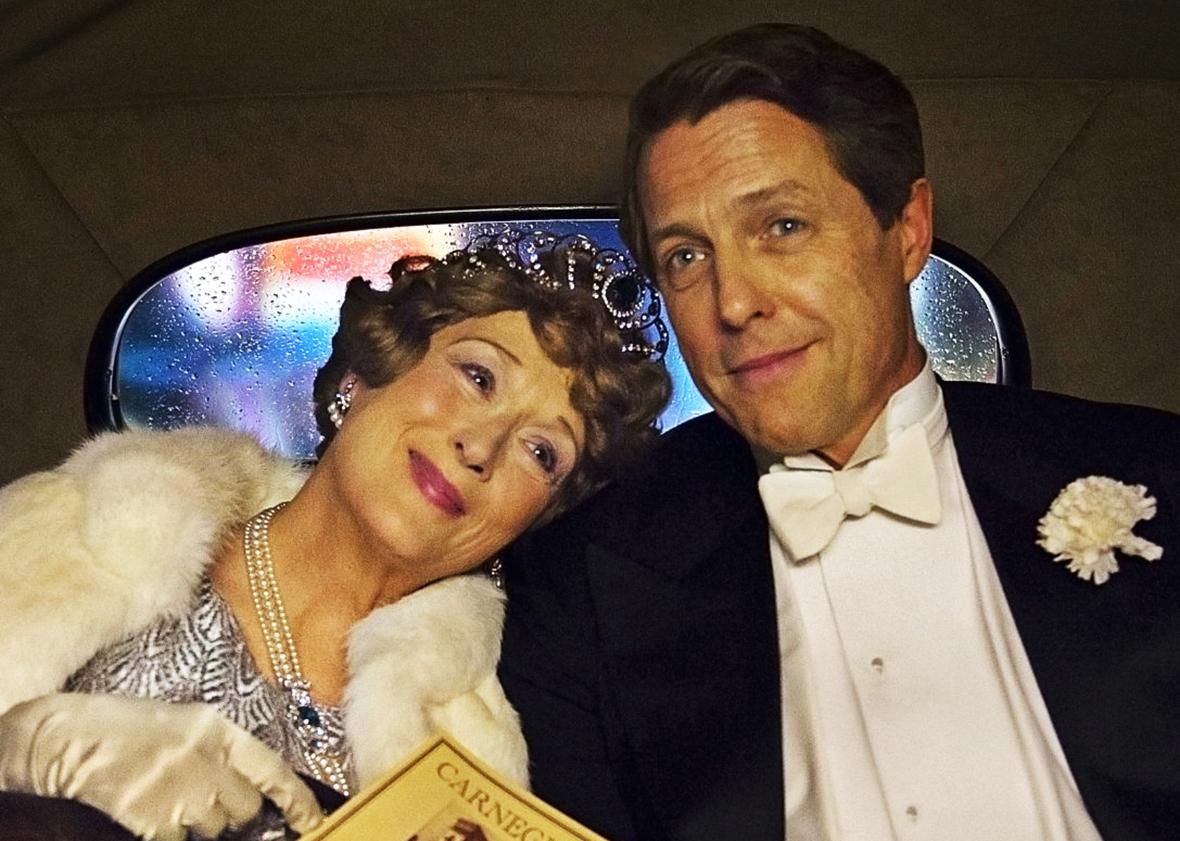Late summer isn’t just a time for malaise, mosquitoes, and bad superhero movies. It’s also, blessedly, become a time for Meryl Streep comedies. Last summer there was Ricki and the Flash. A few years before that, Hope Springs. The Devil Wears Prada (2006), Mamma Mia! (2008), and Julie & Julia (2009) were all mid-to-late summer releases. Just at the moment when the public’s palate has been scorched to numbness by a string of barely differentiable franchise reboots, along comes La Meryl like a cooling scoop of peach ice cream.
Not all of these are necessarily great movies in and of themselves. Hope Springs’ script was never quite funny enough or insightful enough to test the gifts of its sensational co-stars, Streep and Tommy Lee Jones. And the “Julie” sections of Julie & Julia dragged noticeably. But each of these releases, in its way, hit the spot, arriving at that precise moment on the calendar when audiences are starting to feel done with heat and noise and ambient buzzing dystopia.
And boy, has this been a long, hot, noisy, dystopian summer. So Stephen Frears’ Florence Foster Jenkins comes as an extra-welcome serving of exemplary late-summer Meryl. This musical biopic, based on the real-life story of an unskilled would-be diva, is a lushly costumed lark with a simple and unambitious message: Be who you are. Even if who you are is a cossetted patroness of the arts convinced, against all evidence, that you have a coloratura singing voice worthy of Carnegie Hall.
The real Florence Foster Jenkins, born in 1868, toured her home state of Pennsylvania as a child piano prodigy, then taught piano lessons until an arm injury left her with no means of support. Frears’ film picks up her story much later, beginning in 1944, and only sparingly telegraphs information about her life up to that time. Florence has inherited a tidy fortune from her father and invested it in becoming a well-known musical philanthropist in New York society. She is the founder of the Verdi Club, a ladies’ music appreciation society whose fundraising spectacles always feature Florence at the center of their final tableaux vivants, sometimes bedecked with wings, gingerly lowered from the rafters on wires. Florence’s master of ceremonies at these edifying events is her longtime companion, the fusty Shakespearean actor St. Clair Bayfield (a sublimely well-cast Hugh Grant). St. Clair and Florence have an unconventional living arrangement: A shared passion for music ignites their souls, but each night after tucking her in like a baby he leaves to sleep in a separate apartment, bankrolled by Florence and co-occupied by his longtime mistress (the Swedish actress Rebecca Ferguson).
Florence desires a singing career; as the protective Bayfield bars any music critic not on his payroll from attending her subscription-only events, she never quite realizes she is a singularly untalented, untrained vocalist. But as a minor cult following grows up around her honking voice, the oblivious Florence takes a notion to give a public concert in Carnegie Hall, giving away a thousand tickets to rowdy just-returned GIs. She enlists a vastly overqualified accompanist by the wonderful (and real) name of Cosmé McMoon (The Big Bang Theory’s Simon Helberg, an accomplished pianist whose expressive silences and poorly suppressed giggles all but make off with the movie).
Most of this 110-minute-long trifle takes place in the runup to, and aftermath of, that triumphantly awful Carnegie Hall show. Florence Foster Jenkins has a tendency to sand down the rough edges of its historical subject. Though the script, written by British TV veteran Nicholas Martin, is frank about Jenkins’ decadeslong decline from syphilis (which she caught from a quickly divorced and swept-under-the-rug first husband), it glosses over theories that the disease might have been responsible for her exhibitionistic tendencies and eccentric performance style. Frears presents Jenkins as lovingly as Tim Burton presented his title character in Ed Wood, the real-life Z-movie maestro played to perfection by Johnny Depp. This Florence is a beautiful dreamer, an artist by virtue of her sheer passion for her art and the doggedness with which she pursues her creative vision—feathered fans, clanking beads, piercing shriek and all. Streep, who has long enjoyed playing women endowed with more than the average supply of gusto, makes the character’s delusional faith in her own talent so infectious that we ache at the thought of Florence’s impending humiliation even as we prepare ourselves to laugh at it.
Florence Foster Jenkins never attains the heights of Ed Wood—to me, maybe Tim Burton’s best movie—when it comes to investigating the mysterious transhistorical phenomenon of the bad artist whose work nonetheless strangely compels. (Whatever happened to that long-discussed biopic of the magically terrible sister rock act the Shaggs, starring Dakota and Elle Fanning?) In the end, this is a sweet, uplifting comedy with a message that might not stand up to extended scrutiny in the political climate of the moment: Follow your dreams wherever they lead you, even at the expense of correctly apprehending reality. But the movie’s beautiful last line—a sentiment expressed in so many words by the real Ms. Jenkins and impeccably delivered by Streep—is an inarguable defense of a life spent doing whatever you do, including sing off-key, with all your heart.
